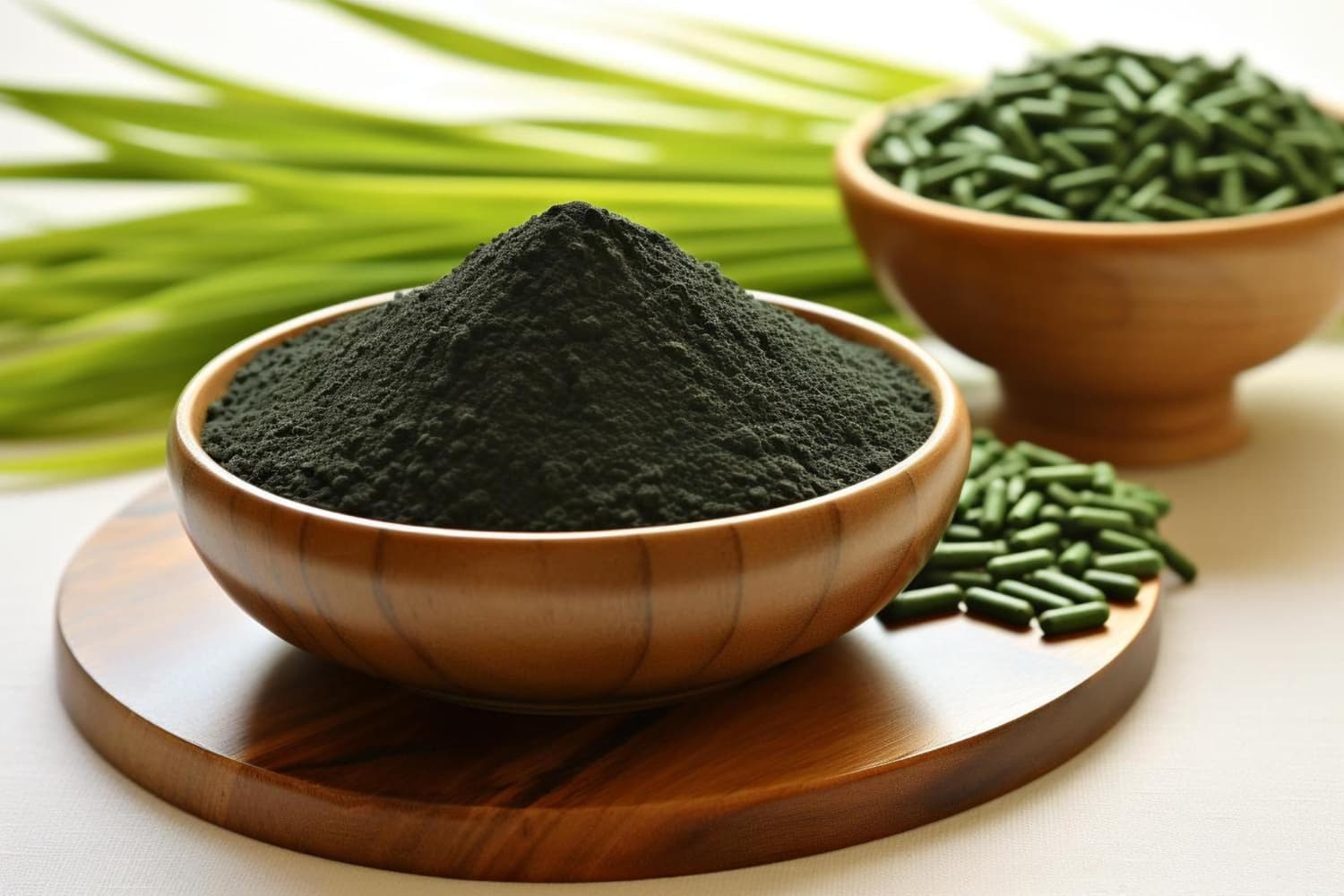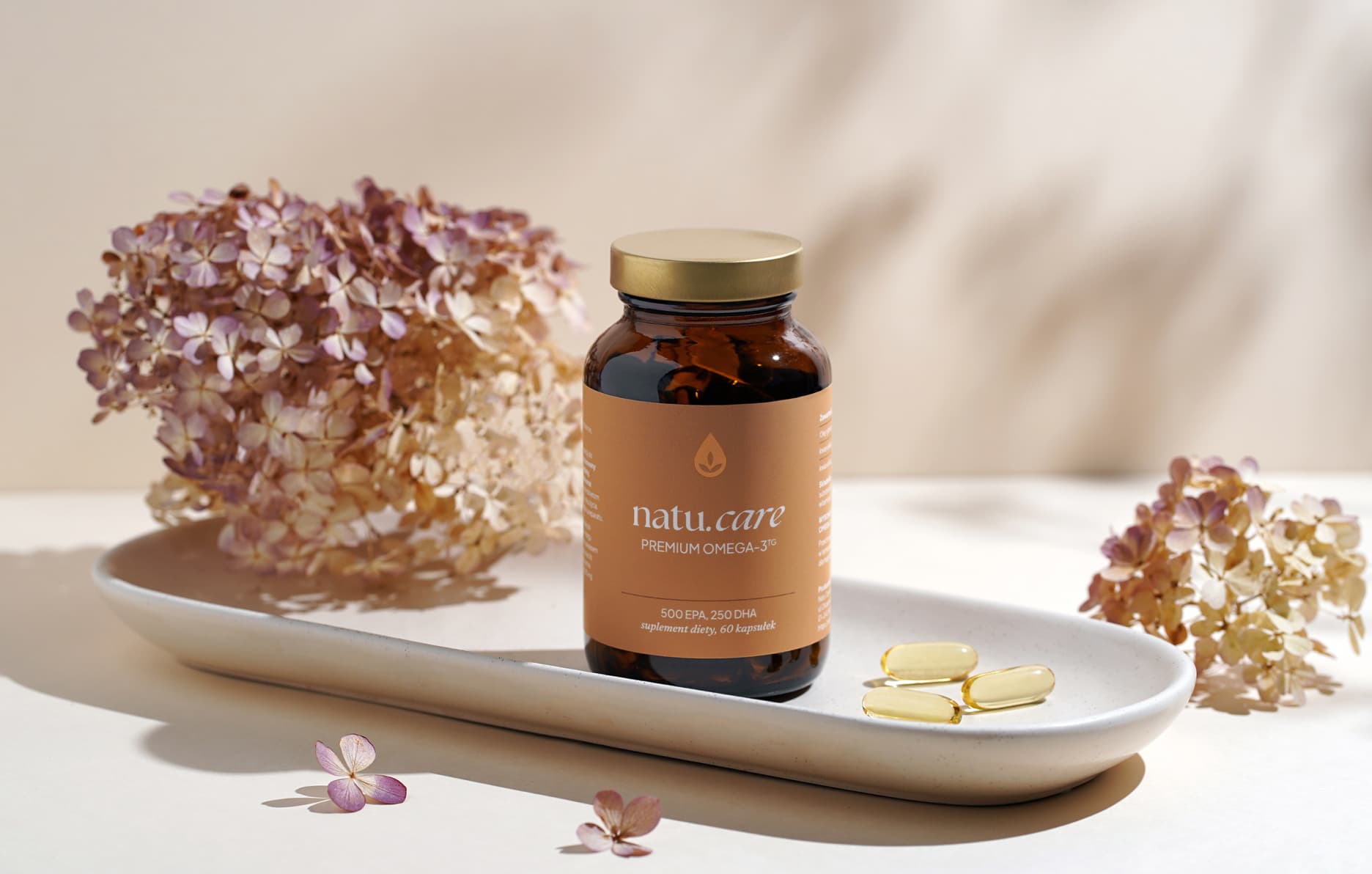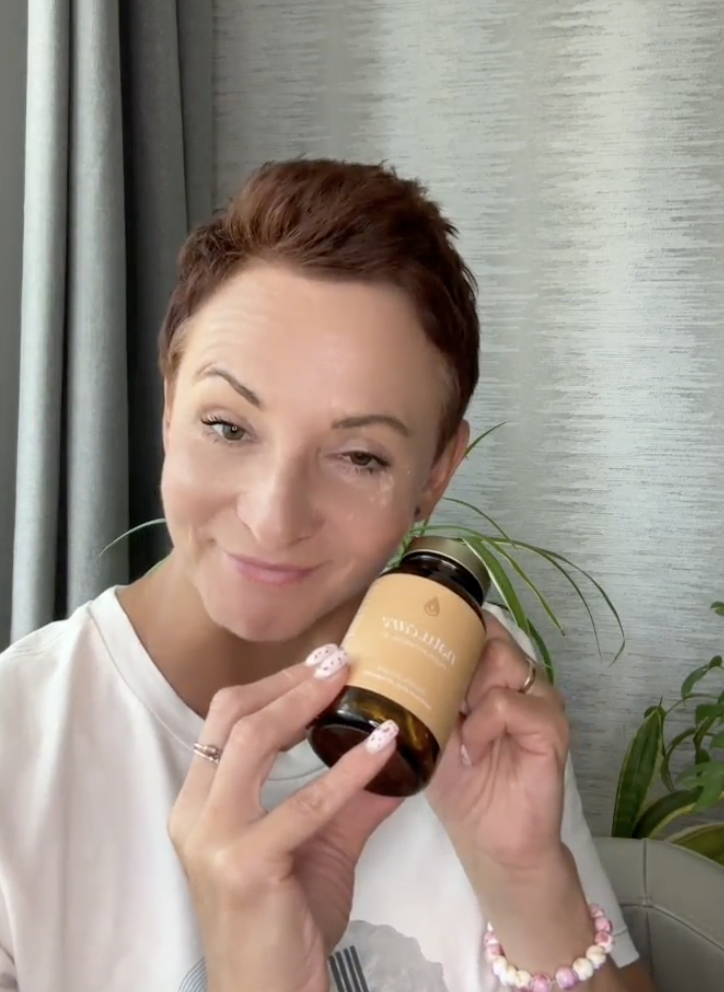Chlorella side effects, benefits, and contraindications
Chlorella is a single-celled alga that exhibits health-promoting properties.


Learn more about our editorial process
.

Learn more about our editorial process
.

Learn more about our editorial process
.

Learn more about our editorial process
.
Why you can trust us
Articles on Natu.Care are written based on scientific research, data from government websites and other reliable sources. The texts are written in cooperation with doctors, nutritionists and other health and beauty experts. Articles are reviewed before publication and during significant updates.
.Learn more about our editorial process
.Information about advertisements
Content on Natu.Care may contain links to products from the sale of which we may receive a commission. When creating content, we adhere to high editorial standards and take care to be objective about the products discussed. The presence of affiliate links is not dictated by our partners, and we select the products we review ourselves completely independently.
.Learn more about our terms and Conditions
.It is about 2 billion years old, is one of the fastest-growing plants in the world and... supports immunity. It is chlorella, an inconspicuous alga that is gaining more and more followers around the world.
Together with clinical nutritionist Julia Skrajda I will present you with the most important information about it.
From this article you will learn:
- What chlorella is and what its composition is. .
- What chlorella helps with and what medicinal properties it has. .
- How to dose chlorella and what it has in common with spirulina. .
- Are there contraindications or side effects during supplementation. .

Sprawdź, za co pokochały go tysiące klientek Natu.Care Premium Omega-3ᵀᴳ -15% z kodem BLOG15
Natu.Care Omega-3ᵀᴳ Premium
Natu.Care Omega-3ᵀᴳ Premium dla zdrowia serca, mózgu i odporności. Najlepsza przyswajalność. Optymalna dawka 750 mg. Przebadana przez niezależne laboratorium.
Zobacz więcej
Produkt ma super skład, transparentną etykietę i co dla mnie jest ważne – małe kapsułki do połknięcia. Nie ma też nieprzyjemnego efektu odbijania rybą, który miałam spożywając inne produkty. Widzę znaczną poprawę odporności. Polecam!@Kasia P.
See also:
What is chlorella?
.
Chlorella is a species of single-celled, freshwater green alga that is known for its high nutrient content. It is a green treasure trove protein, vitamins, minerals and antioxidant chlorophylland.
What composition does chlorella have - vitamins and minerals
.
Chlorella has become popular as a dietary supplement because of its rich composition. It is considered a 'superfood' because of its broad nutrient profile. The most important include protein, vitamins, minerals and plant compounds.
- Protein. It accounts for approximately 50-60% of the weight of chlorella. Protein is crucial to the diet as it is involved in building and repairing body tissuesand. .
- Vitamins. Chlorella contains a variety of vitamins such as A, B1, B2, B3, B6, C and E. These support important metabolic processes and contribute to the body's overall immunityand. .
- Minerals. In chlorella you will find important compounds for the body, such as magnesium, potassium, phosphorus or iron. Minerals are important for the functioning of most systems in the bodyand. .
- Plant compounds. Chlorella contains unique plant compounds that support human health. These include chlorophyll, which supports detoxification of the body, and Chlorella Growth Factor (CGF), which can accelerate tissue regenerationand. .
Where does chlorella occur?
.
Chlorella is a type of microscopic freshwater algae that naturally occurs in aquatic ecosystems around the world. They are common in ponds, lakes and rivers, as well as in artificial pools of water. They have the ability to survive in a wide variety of environmental conditions, both in terms of temperature and light availabilityand.
For commercial purposes, chlorella is usually cultured under controlled conditions, in large open ponds, to ensure optimal growth conditions as well as high quality and purity of the product.
What chlorella helps with - medicinal properties and effects
.
As you already know, chlorella is rich in nutrients and can therefore contribute to the overall health and proper functioning of the body. Enriching your diet with this alga can provide a range of health benefits. How exactly does chlorella work?
.
Strengthens the immune system
.
The main component of chlorella that strengthens the immune system is chlorophyll. It is not only an important part of photosynthesis, but also a well-known antioxidant. It helps protect cells from the effects of oxidative stress, which is important for, among other things, maintaining a healthy immune systemand.
Chlorella also contains nutrients such as zinc, folic acid, and iron, which are also essential for maintaining a strong immune system. This plant also provides beta-glucan. This is a type of soluble fibre that is known for its immune system-boosting properties. It works by activating immune cells, such as T and B lymphocytes and macrophages, which are responsible for defending the body against infectionand.
Study
One scientific paper tested the effects of chlorella supplementation on immune system function. The study involved 15 men who were divided into two groups - one taking a placebo and the other a chlorella preparation. After four weeks, the group taking chlorella was distinguished by better immune system functionand.
.
That's why it's worth adding chlorella to your supplemental "immune shield" - alongside omega-3 acids, vitamin D and zinc.
.
Promotes the removal of toxins from the body
.
Chlorella is extremely effective in removing toxins from the body due to its detoxifying properties. This action is due to the presence of a unique substance called 'Chlorella Growth Factor' (CGF), which helps to regenerate cells and repair DNAand.
Chlorella also has the ability to bind heavy metals and other toxins in the body. This is due to its high fibre content and chlorophyll properties, which have the ability to absorb toxins and harmful compounds from the digestive tract. These are then transported through the digestive system so that they can be removed by the natural routeand.
Remember that your body detoxifies itself, and it does exactly that... your liver . You don't need to undergo special detoxes or follow cleansing diets.
Promotes lowering of LDL cholesterol
.
Research suggests that chlorella may help lower LDL cholesterol (also known as 'bad' cholesterol) and increase HDL cholesterol (i.e. the 'good' cholesterol)and.
Chlorella contains monounsaturated fatty acids, fibre, carotenoids and antioxidants, all of which are beneficial for heart health. In particular, fibre prevents the absorption of LDL cholesterol in the gastrointestinal tract, which helps lower blood cholesteroland.
What's more, some studies indicate also that the use of chlorella supplements can lower blood lipid levels, including LDL cholesterol and triglycerides, which may contribute to overall heart healthand.
Study
A 2014 study tested the effects of supplementation with 5 grams of chlorella per day on cholesterol. The scientific work lasted a total of six weeks and involved 63 people taking either a placebo or a chlorella supplement. Compared to the control group, the group taking chlorella showed significant changes in total cholesterol and triglyceridesand.
Shows antioxidant activity
.
Chlorella is a rich source of antioxidants - substances that protect cells from the damaging effects of free radicals, which are molecules that can damage them and contribute to faster ageing and the development of many diseases .
Chlorella is a rich source of antioxidants - substances that protect cells from the damaging effects of free radicals, which are molecules that can damage cells and contribute to faster ageing and the development of many diseases.
Chlorella contains antioxidants such as chlorophyll, carotenoids, vitamin C, vitamin E, and various minerals. In addition, it provides the so-called Chlorella Growth Factor (CGF), which is rich in nucleic acid. This acid is a powerful antioxidant known for its ability to support cell health, as well as DNA regeneration and repairand.
These antioxidants help neutralise free radicals and protect the body from oxidative stress, which ultimately strengthens the immune system and helps fight chronic inflammation. With its cleverly targeted antioxidant activity, chlorella contributes to the protection of cellular integrity and increases overall vitalityand.
Study
One scientific paper tested the effect of chlorella on oxidative stress in a group of people who are particularly vulnerable to it - smokers. A group of 38 people were given 3.6 g of chlorella daily for six weeks. Chlorella supplementation significantly reduced indices of antioxidant status in chronic cigarette smokersand.
.
Helps maintain normal blood pressure
.
One of the most important components of chlorella is arginine, an amino acid that is a precursor to nitric oxide. Nitric oxide, in turn, is important for the proper functioning of blood vessels, as it binds to the smooth muscle cells in the vessel walls, causing them to relax and thereby reducing blood pressureand.
Chlorella is also high in fibre and potassium, ingredients that are beneficial for heart health. Fibre can help lower blood pressure by reducing LDL cholesterol, while potassium helps to balance the effects of sodium on blood pressure by promoting its excretion from the body .
Study
One scientific study examined the effects of chlorella on blood pressure. The scientific work lasted 12 weeks and involved 80 people divided equally between a group taking chlorella and a placebo. The results showed a significant reduction in systolic blood pressure in those taking chlorella, and diastolic blood pressure showed a tendency to decreaseand.
Promotes normal blood sugar levels
.
Because of its high fibre content, chlorella can help reduce blood sugar spikes after a meal.
Additionally, some studies suggest that chlorella may improve insulin sensitivity, which is key to maintaining stable blood sugar levels. Increased insulin sensitivity promotes more efficient use of glucose by cells, which helps prevent excessive spikes in bloodand.
However, although the nutrients in chlorella may help control blood sugar levels, it should not be considered as a stand-alone treatment for people with diabetes or other metabolic disorders.
Study
A study conducted on 34 people examined the effects of using chlorella for 16 weeks. The results showed a reduction in body fat percentage, total cholesterol and fasting glucose levelsand.
May improve physical endurance
.
Chlorella contains high amounts of BCAA (branched-chain amino acids), which are a key ingredient in helping muscle recovery after exercise. By promoting muscle recovery, chlorella can help increase endurance and performance during intense trainingand.
Additionally, chlorella is rich in antioxidants to help combat oxidative stress, which results from, among other things, intense exercise. Reducing oxidative stress can lead to better performance and muscle recovery.
Study
A study conducted on a group of ten young people (mean age 21.3 years), examined the effects of chlorella-based supplements on aerobic capacity. Each participant took either a placebo or chlorella tablets for four weeks, followed by a six-week break and the procedure was repeated. The results showed that after taking the chlorella tablets, the participants significantly increased their maximal oxygen-consuming capacity during exercise, while the placebo did not have this effectand.
See also:
.Does chlorella help with cancer
Clinical nutritionist, Julia Skrajda says that preliminary research suggests a positive effect of chlorella on cancer treatment. However, this is initial scientific work on animals, which requires further confirmation.
How to use chlorella?
.
The dosage of chlorella is usually 3-6 grams per day. These dosages have been given in most studies and have been shown to be both effective and safe. However, there is no set upper limit for chlorella supplementation, so it is not advisable to go beyond this (without consulting your doctor)and.
Who is chlorella for?
.
People who should consider using chlorella include athletes, vegetarians, vegans, seniors and those with nutritional deficiencies. Why is it valuable specifically for these groups?
.
|
Group of people . |
Why should she consider chlorella?and |
||||||
|
Athletes |
Chlorella provides healthy, natural protein (58 g in 100 g), which is essential for muscle recovery after intense exercise. What's more, active people can also benefit from the antioxidants contained in chlorella, which help to combat the harmful free radicals formed during intense exercise. |
Chlorella is also a great source of antioxidants. |
|||||
|
Seniors |
Chlorella can support the immune system as well as improve digestion and gut health, which is important for seniors who often struggle with age-related health issues. |
Seniors |
Seniors
|
Seniors. |
|||
|
Vegetarians and vegans |
These groups often find it difficult to obtain adequate amounts of protein and some vitamins from a plant-based diet. Chlorella is an excellent source of these ingredients. |
||||||
|
People with nutritional deficiencies . |
Chlorella is rich in many key nutrients that can help compensate for nutritional deficiencies. This alga contains protein, iron, magnesium, zinc and many other minerals, as well as B vitamins, C and E. |
What not to combine chlorella with?
.
Chlorella is usually safe, but combining it with certain agents can lead to negative interactions or weaken the effectiveness of the supplement. What should you not take chlorella withand?
- Blood pressure-lowering drugs. Chlorella has blood pressure-lowering properties, so its consumption along with hypotensive drugs can lead to dangerously low blood pressure.
- Immunosuppressive medications. Chlorella can stimulate the immune system, which is a disadvantage for people taking immunosuppressive medications. When you try to stimulate and suppress the immune system at the same time, a conflict can occur.
- Anticoagulants. Chlorella can slow down the blood clotting process. So if you are taking anticoagulants, supplementing with chlorella may increase your risk of health complications.
Chlorella - morning or evening?
.
Chlorella can be consumed both in the morning and in the evening, and the choice between the two options depends on individual preference and how the body reacts. Some people may feel extra energy after it, so they prefer to consume it in the morning to benefit from this effect during the day.
Others, on the other hand, may take chlorella in the evening to support the body's regenerative processes while sleeping. Whichever time you choose, chlorella is worth consuming regularly and according to the recommended dosage in order to reap the greatest possible benefit.
When to take chlorella for a longer period of time.
How long to use chlorella?
.
Most studies that have examined the effects of chlorella on the body have lasted from a few to several weeks. Therefore, its effect is not known for longer than this period or for continuous supplementation. Therefore, it is advisable to use chlorella for 3-4 months and then take a break for a few weeks. And if you want to be sure that supplementation is safe - check with your doctorand.
What are the contraindications to using chlorella?
.
Although chlorella is safe for the general public, some people should not take it. What are the main contraindications to supplementation with this algaand?
- Allergies. Some people may be allergic to chlorella and experience a variety of reactions that include itching, hives or respiratory problems.
- Some people may be allergic to chlorella and experience a variety of reactions that include itching, hives or respiratory problems.
- Iodine sensitivity. Chlorella contains iodine, which can be harmful to people with hyperactive thyroidism.
- .
- Pregnancy and breastfeeding. Due to little research, chlorella should be avoided by pregnant and breastfeeding women.
.
- Autoimmune disorders. Chlorella may stimulate the immune system, which may be harmful to people with autoimmune diseases.
.
Chlorella - side effects
.
Chlorella is generally considered a safe dietary supplement for most people, but it can cause some side effects. The most commonly noted side effects are digestive symptoms such as abdominal pain, bloating, nausea, green stools and gasand.
Another potential side effect is an allergic reaction. Some people are allergic to chlorella, which can lead to symptoms such as hives, swelling, shortness of breath and other respiratory complaints .
.
Also, chlorella may interact with some medications, including anticoagulants. This can lead to side effects in people who take such preparationsand.
Where to buy chlorella?
.
You can buy chlorella both in pharmacies and drugstores such as Rossmann. You will also get it in online shops, especially herbal shops, where products such as Chlorella Pyrenoidosa or BIO are available. The price of chlorella, on the other hand, usually ranges from tens to hundreds of zlotys - depending on the manufacturer and also the form (powder or tablets).
Spirulina and chlorella - what are they?
.
Spirulina and chlorella are two different types of microalgae commonly used as health supplements. Although they are similar in terms of their nutritional composition and benefits to the body, they are distinguished by several key differences.
Spirulina is a blue-green sea alga that is one of the oldest life forms on Earth. Considered a 'superfood' due to its impressive nutritional profile, spirulina is rich in protein, vitamins, minerals and antioxidants. It can help reduce inflammation, support the immune system, and counter anemia .
Chlorella is a green microalga. It is known for its high chlorophyll content and is also very rich in proteins, vitamins and minerals. Chlorella has a unique characteristic that allows it to bind toxins and heavy metals, which is important for the body's detoxification processes. It also shows benefits for the immune system and can support cardiovascular health.
How to take chlorella and spirulina - together or separately
.
The use of spirulina and chlorella depends on individual health goals and preferences. Both products offer a wide range of health benefits, but also have unique properties.
By taking them together, you can combine their health benefits. Spirulina is particularly known for its ability to improve endurance and reduce fatigue, while chlorella is often used for detoxification. Taking both at the same time can provide the body with comprehensive support.
However, if you are targeting a specific health benefit - cleansing the body - you may choose to take only chlorella. Similarly, if your main goal is to increase endurance performance, spirulina may be a better choice.
Spirulina and chlorella - side effects
.
Although spirulina and chlorella are widely regarded as safe, they can cause some side effects, especially when supplemented in large quantities or by people who are not used to taking them.
Spirulina and chlorella can cause some side effects.
Spirulina can cause side effects such as nausea, bloating, diarrhoea, abdominal pain, allergic reactions and even fever. Chlorella has a similar side-effect profile, including diarrhoea, nausea, gas, green colouring of stools and abdominal pain.
P>The following is an example.
Also, as chlorella can bind heavy metals, people who consume a lot of it may experience symptoms related to cleansing the body of toxins, such as dizziness and fatigue.
What's more, both spirulina and chlorella can affect the effectiveness of certain medications, which can lead to a reduction in their effectiveness, or an increased risk of side effects. Therefore, it is always important to consult your doctor or nutritionist before introducing these supplements into your diet, especially if you are taking any medication.
Chlorella in pregnancy
.
Chlorella is a popular dietary supplement known for its detoxifying and nutritional properties. However, its intake - as with any supplement - during pregnancy should be consulted with your doctor.
According to some studies, chlorella can help improve the quality of breast milk and increase levels of IgA (immunoglobulin A) - antibodies in breast milk that are important for the immunity of the newborn. In addition, because of its ability to bind heavy metals and toxins, chlorella may help reduce the baby's risk of exposure to adverse environmental substancesand.
However, there is no conclusive evidence on the safety and efficacy of chlorella use during pregnancy, so always consult your doctor about supplementation. The highly diverse nutrients may react differently for different people, and their effects may vary depending on the stage of pregnancy.
Pregnancy.
Chlorella and breastfeeding
.
Chlorella may be recommended for breastfeeding mothers as a dietary supplement, but as with all supplements, it is always best to consult a doctor or nutritionist before taking it.
Chlorella may help to increase levels DHA (omega-3 fatty acids) in breast milk, which is beneficial for brain and vision development in infants. The chlorophyll content of chlorella also helps to detoxify the body, which can be beneficial for breastfeeding mothers who want to minimise their babies' exposure to toxinsand.
However, as with other supplements, taking chlorella does carry the risk of side effects. Some people may experience gastrointestinal symptoms such as nausea, diarrhoea, gas, or abdominal pain.
Similarly, people who are allergic to iodine or have thyroid problems should take extra caution or avoid chlorella, as it contains naturally occurring iodine.
See also:
- KSM-66 purest ashwagandha
- Cordyceps
- Caffeine
- Reishi
- Lion's Mane
- Chaga
- Berberine
- Cordyceps
- Macrocephalus
- Hogweed
Chlorella - reviews
.
I have been using chlorella for a month now and I have to say that I can really see a difference. I have more energy and feel better overall. I definitely recommend it..
Anna32 years old
I have been taking chlorella for a few weeks now. I admit that I had slight stomach problems at first, but after a few days everything went back to normal. I feel much better after it and am less tired..
Magda28 years old
I bought chlorella because I read about its beneficial effects on the immune system. So far, I am satisfied. I even noticed better digestion..
Tomasz45 years old
I tried chlorella because a friend recommended it to me. Nevertheless, for me, there is not much difference. Maybe I need more time to see the effects..
Piotr38 years old
I don't know if it's a coincidence or if it's the chlorella, but I've been getting sick less since I started taking it. It's enough for me to keep reaching for it..
Lukasz31 years old
Summary
.
- Chlorella is a species of unicellular, freshwater green alga that is rich in nutrients such as protein, vitamins and minerals.
- Chlorella has many health benefits, such as boosting the immune system, removing toxins from the body, lowering LDL cholesterol, antioxidant activity, maintaining normal blood pressure, controlling blood sugar levels, and improving physical endurance.
- The dosage of chlorella is usually 3-6 grams per day and can be taken for 3-4 months, after which it is advisable to take a break for a few weeks.
- Chlorella can react with some medications, so you should consult your doctor before taking it. .
- Chlorella can be useful for different groups of people, such as athletes, vegetarians, vegans, seniors and people with nutritional deficiencies.
- Chlorella is generally considered safe, but can cause some side effects such as nausea, bloating, diarrhoea, green stools and gas.
- Spirulina and chlorella are two different types of microalgae that can be consumed together or separately, depending on individual health goals and preferences. .
- Taking chlorella during pregnancy or breastfeeding should be consulted with a doctor. .
- Opinions on the effects of chlorella vary and depend on the individual body's response. .
FAQ
.Can chlorella help you lose weight?
.Chlorella by itself does not cause weight loss. However, due to its high content of protein and fibre, it can prolong the feeling of satiety, which helps to control appetite. In addition, due to its detoxifying properties, chlorella can be thought to promote healthy digestion, which is key to maintaining a healthy body weight.
What are the side effects of consuming chlorella?
.Although most people tolerate chlorella well, some may experience side effects, especially at the beginning of supplementation. The most commonly reported side effects are nausea, diarrhoea, gas, abdominal pain and green stools. In rare cases, chlorella can also cause allergic reactions.
Are chlorella and spirulina safe together?
.Yes, chlorella and spirulina are often consumed together and are considered safe. Both supplements are rich in protein, vitamins and minerals and have similar health benefits.
Can chlorella help cleanse the body of heavy metals?
.Yes, chlorella is known for its detoxifying properties and is often used to cleanse the body of toxins, including heavy metals. A unique ingredient, CGF (Chlorella Growth Factor), helps to regenerate cells and repair DNA while fibre and chlorophyll have the ability to absorb toxins and heavy metals from the digestive tract.
What is the difference between chlorella vulgaris and chlorella pyrenoidosa?
.Chlorella vulgaris and chlorella pyrenoidosa are two species of chlorella. Although they are very similar in terms of nutritional content, they differ in terms of cell wall structure. Chlorella vulgaris has thinner cell walls, which may facilitate its digestion and absorption. Meanwhile, chlorella pyrenoidosa has thicker cell walls, which may increase its ability to bind toxins.
Is chlorella safe for children?
.Chlorella is generally safe for children, provided they are healthy and have no allergies to the product. However, children should only consume chlorella under the supervision of a doctor or nutritionist. Any decision regarding supplementation should be consulted with a healthcare professional.
Can chlorella harm the liver?
.Chlorella is most often safe for the liver, and may even benefit from its detoxifying properties. However, like any supplement, it should be consumed in moderation and always after consulting a doctor or nutritionist.
.
Resources
.See all
.Alissa, E. M., & Ferns, G. A. (2011). Heavy Metal Poisoning and Cardiovascular Disease. Journal of Toxicology, 2011, 870125. https://doi.org/10.1155/2011/870125
Ebrahimi-Mameghani, M., Aliashrafi, S., Javadzadeh, Y., & AsghariJafarabadi, M. (2014). The Effect of Chlorella vulgaris Supplementation on Liver En-zymes, Serum Glucose and Lipid Profile in Patients with Non-Alcoholic Fatty Liver Disease. Health Promotion Perspectives, 4(1), 107-115. https://doi.org/10.5681/hpp.2014.014
Ebrahimi-Mameghani, M., Sadeghi, Z., Abbasalizad Farhangi, M., Vaghef-Mehrabany, E., & Aliashrafi, S. (2017). Glucose homeostasis, insulin resistance and inflammatory biomarkers in patients with non-alcoholic fatty liver disease: Beneficial effects of supplementation with microalgae Chlorella vulgaris: A double-blind placebo-controlled randomized clinical trial. Clinical Nutrition (Edinburgh, Scotland), 36(4), 1001-1006. https://doi.org/10.1016/j.clnu.2016.07.004
Grant, D. M. (1991). Detoxification pathways in the liver. Journal of Inherited Metabolic Disease, 14(4), 421-430. https://doi.org/10.1007/BF01797915
Kim, D.-H., Kim, S.-H., Jeong, W.-S., & Lee, H.-Y. (2013). Effect of BCAA intake during endurance exercise on fatigue substances, muscle damage substances, and energy metabolism substances. Journal of Exercise Nutrition & Biochemistry, 17(4), 169-180. https://doi.org/10.5717/jenb.2013.17.4.169
Kwak, J. H., Baek, S. H., Woo, Y., Han, J. K., Kim, B. G., Kim, O. Y., & Lee, J. H. (2012). Beneficial immunostimulatory effect of short-term Chlorella supplementation: Enhancement of natural killer cell activity and early inflammatory response (randomized, double-blinded, placebo-controlled trial). Nutrition Journal, 11, 53. https://doi.org/10.1186/1475-2891-11-53
Lordan, S., Ross, R. P., & Stanton, C. (2011). Marine Bioactives as Functional Food Ingredients: Potential to Reduce the Incidence of Chronic Diseases. Marine Drugs, 9(6), 1056-1100. https://doi.org/10.3390/md9061056
Mizoguchi, T., Takehara, I., Masuzawa, T., Saito, T., & Naoki, Y. (2008). Nutrigenomic studies of effects of Chlorella on subjects with high-risk factors for lifestyle-related disease. Journal of Medicinal Food, 11(3), 395-404. https://doi.org/10.1089/jmf.2006.0180
Nakano, S., Takekoshi, H., & Nakano, M. (2007). Chlorella (Chlorella pyrenoidosa) supplementation decreases dioxin and increases immunoglobulin a concentrations in breast milk. Journal of Medicinal Food, 10(1), 134-142. https://doi.org/10.1089/jmf.2006.023
Office of Dietary Supplements-Iron. (n.d.). Retrieved March 16, 2023, from https://ods.od.nih.gov/factsheets/Iron-HealthProfessional/
Otsuki, T., Shimizu, K., Iemitsu, M., & Kono, I. (2011). Salivary secretory immunoglobulin A secretion increases after 4-weeks ingestion of chlorella-derived multicomponent supplement in humans: A randomized cross over study. Nutrition Journal, 10, 91. https://doi.org/10.1186/1475-2891-10-91
Otsuki, T., Shimizu, K., Iemitsu, M., & Kono, I. (2013). Multicomponent supplement containing Chlorella decreases arterial stiffness in healthy young men. Journal of Clinical Biochemistry and Nutrition, 53(3), 166-169. https://doi.org/10.3164/jcbn.13-51
Ozguner, F., Koyu, A., & Cesur, G. (2005). Active smoking causes oxidative stress and decreases blood melatonin levels. Toxicology and Industrial Health, 21(1-2), 21-26. https://doi.org/10.1191/0748233705th211oa
Panahi, Y., Darvishi, B., Jowzi, N., Beiraghdar, F., & Sahebkar, A. (2016). Chlorella vulgaris: A Multifunctional Dietary Supplement with Diverse Medicinal Properties. Current Pharmaceutical Design, 22(2), 164-173. https://doi.org/10.2174/1381612822666151112145226
Panahi, Y., Mostafazadeh, B., Abrishami, A., Saadat, A., Beiraghdar, F., Tavana, S., Pishgoo, B., Parvin, S., & Sahebkar, A. (2013). Investigation of the effects of Chlorella vulgaris supplementation on the modulation of oxidative stress in apparently healthy smokers. Clinical Laboratory, 59(5-6), 579-587. https://doi.org/10.7754/clin.lab.2012.120110
Panahi, Y., Pishgoo, B., Jalalian, H. R., Mohammadi, E., Taghipour, H. R., Sahebkar, A., & Abolhasani, E. (2012). Investigation of the effects of Chlorella vulgaris as an adjunctive therapy for dyslipidemia: Results of a randomised open-label clinical trial. Nutrition & Dietetics, 69(1), 13-19. https://doi.org/10.1111/j.1747-0080.2011.01569.x
Queiroz, M. L. S., Rodrigues, A. P. O., Bincoletto, C., Figueirêdo, C. A. V., & Malacrida, S. (2003). Protective effects of Chlorella vulgaris in lead-exposed mice infected with Listeria monocytogenes. International Immunopharmacology, 3(6), 889-900. https://doi.org/10.1016/S1567-5769(03)00082-1
Ryu, N. H., Lim, Y., Park, J. E., Kim, J., Kim, J. Y., Kwon, S. W., & Kwon, O. (2014). Impact of daily Chlorella consumption on serum lipid and carotenoid profiles in mildly hypercholesterolemic adults: A double-blinded, randomised, placebo-controlled study. Nutrition Journal, 13, 57. https://doi.org/10.1186/1475-2891-13-57
Sansawa, H., Takahashi, M., Tsuchikura, S., & Endo, H. (2006). Effect of chlorella and its fractions on blood pressure, cerebral stroke lesions, and life-span in stroke-prone spontaneously hypertensive rats. Journal of Nutritional Science and Vitaminology, 52(6), 457-466. https://doi.org/10.3177/jnsv.52.457
Shimada, M., Hasegawa, T., Nishimura, C., Kan, H., Kanno, T., Nakamura, T., & Matsubayashi, T. (2009). Anti-hypertensive effect of gamma-aminobutyric acid (GABA)-rich Chlorella on high-normal blood pressure and borderline hypertension in placebo-controlled double blind study. Clinical and Experimental Hypertension (New York, N.Y.: 1993), 31(4), 342–354. https://doi.org/10.1080/10641960902977908
Uchikawa, T., Kumamoto, Y., Maruyama, I., Kumamoto, S., Ando, Y., & Yasutake, A. (2011). Enhanced elimination of tissue methylmercury in Parachlorella beijerinckii-fed mice. The Journal of Toxicological Sciences, 36(1), 121-126. https://doi.org/10.2131/jts.36.121
Umemoto, S., & Otsuki, T. (2014). Chlorella-derived multicomponent supplementation increases aerobic endurance capacity in young individuals. Journal of Clinical Biochemistry and Nutrition, 55(2), 143-146. https://doi.org/10.3164/jcbn.14-58
Watanabe, F., Yabuta, Y., Bito, T., & Teng, F. (2014). Vitamin B12-Containing Plant Food Sources for Vegetarians. Nutrients, 6(5), 1861-1873. https://doi.org/10.3390/nu6051861
Yamagishi, S., Nakamura, K., & Inoue, H. (2005). Therapeutic potentials of unicellular green alga Chlorella in advanced glycation end product (AGE)-related disorders. Medical Hypotheses, 65(5), 953-955. https://doi.org/10.1016/j.mehy.2005.05.006
Zhai, Q., Narbad, A., & Chen, W. (2014). Dietary Strategies for the Treatment of Cadmium and Lead Toxicity. Nutrients, 7(1), 552-571. https://doi.org/10.3390/nu7010552
.
Editorials
Meet the team



Ashwagandha affects thyroid hormone levels. Find out if you can use it.

See how mountain pintail can affect your wellbeing.

Check out the opinions of doctors and other professionals about ashwagandha. Also find out what people on the forum think about it.
